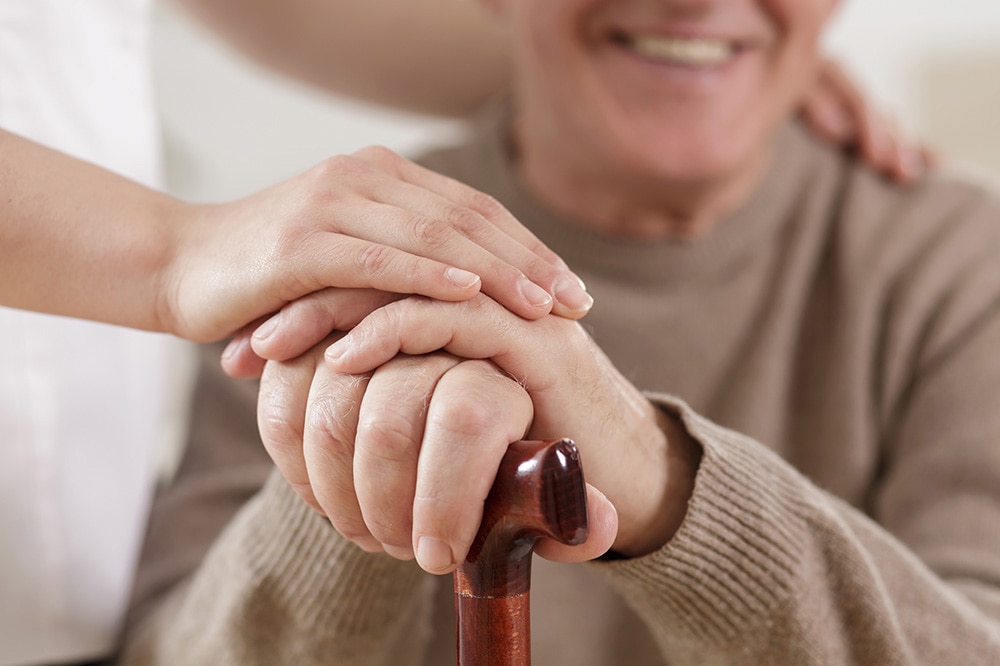It makes me very sad when I read about ‘lone carers’, writes Jill Eckersley. Good care requires teamwork and no-one should be left to cope alone. When my Dad died in 2014 I knew that Mum, who had been diagnosed with Alzheimer’s, wouldn’t be able to manage. They lived in a sheltered flat a mile from my brother. We’d already arranged a cleaning lady, and the local Social Services had provided (for free) a bath lift and raised toilet seat. Mum was devastated by Dad’s death and moving in with my brother seemed the best option.
We discussed it together. They had a comfortable spare room which we arranged with Mum’s family photos and other treasures. Right from the start, Mum’s care was shared – with the family, a local Day Centre, paid carers and respite. Everyone did what they could, so no-one felt ‘put-upon’ and no-one felt guilty.
Mum could wash, dress and feed herself and although increasingly physically frail, could walk round the house and into the garden. We found a wheelchair on eBay for outings and obtained a Blue Badge for the car. Three or four times a year my brother and sister-in-law went on holiday and I took over, helped by my niece. My main contribution was talking to her. Mum loved to reminisce about the old days. When I wasn’t with her, we spoke on the phone. When I was, we had longer chats. I listened to the same old stories over and over and over again. I told myself that one day I’d be glad I had asked Mum about her early life and wartime experiences. Now I’m glad I did.
I made up my mind that I would never disagree with what the rest of the family did for Mum. They were there full-time and I wasn’t. I’ve heard carers say how annoying it is when the part-timers criticise! We were a good team, all doing what we did best. My brother drove Mum to medical appointments and the memory clinic. My sister-in-law is a whizz at paperwork so she kept track of Mum’s finances and emailed me copies of her bank statements. I did the holiday relief, and chatted.
We researched local Day Centres and respite care homes and suggested to Mum that she might like to spend a couple of days a week at one. This was a huge success. Mum was a sociable soul and always enjoyed meeting people, having activities organised for her, doing quizzes, playing games – and sometimes winning! She soon asked if she could go every day and: “Am I going to the Day Centre today?” was her first question when she woke up!
They offered respite rooms too, so if necessary she could stay overnight and be with people she already knew. If my brother wanted an evening out the neighbours’ teenagers were happy to ‘granny-sit’ or we could employ paid carers.
Yes, this all cost money. But we’d agreed from the start that Mum’s income (State pension and small private pension) should be spent on her care, and we made sure Mum also got all the benefits she was entitled to. I was shocked to discover that millions in pensioners’ benefits is not claimed, which seems crazy. Individual amounts may seem small but they add up! There’s also a website called turn2us.org.uk which offers information about help for those on low incomes.
Obviously, everyone’s situation is different. But teamwork takes the pressure off.
